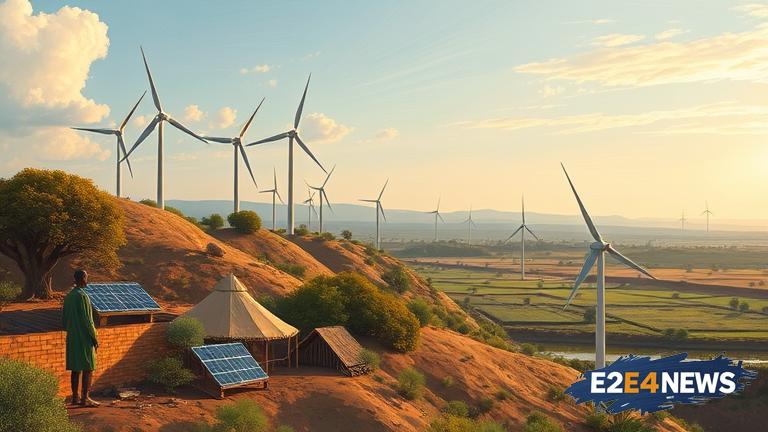The African continent is witnessing a significant shift towards renewable energy, driven by the need to address the pressing issues of energy access, climate change, and sustainable development. With many countries still struggling to provide reliable and affordable electricity to their citizens, renewable energy has emerged as a viable solution. Solar and wind power are leading the charge, with countries like South Africa, Egypt, and Morocco investing heavily in these sectors. The African Union’s ambitious goal of achieving 100% access to electricity by 2030 has further accelerated the adoption of renewable energy. Governments and private sector players are working together to develop large-scale renewable energy projects, creating new opportunities for investment and job creation. The use of renewable energy is also expected to reduce greenhouse gas emissions, contributing to global efforts to combat climate change. Moreover, renewable energy can help to reduce dependence on fossil fuels, improving energy security and reducing the impact of price volatility. In addition to solar and wind power, other forms of renewable energy such as hydro, geothermal, and biomass are also being explored. The development of renewable energy infrastructure is also driving innovation, with new technologies and business models emerging to support the growth of the sector. However, despite the progress made, significant challenges remain, including the need for greater investment, better policy frameworks, and improved grid infrastructure. To address these challenges, international cooperation and knowledge sharing are essential, with countries like China, the United States, and the European Union providing support and expertise to African nations. The private sector is also playing a critical role, with companies like Vestas, Siemens Gamesa, and Goldwind investing in renewable energy projects across the continent. Furthermore, the growth of renewable energy is also creating new opportunities for local communities, with many projects being developed in partnership with local stakeholders. This approach not only helps to build trust and support but also ensures that the benefits of renewable energy are shared equitably. As the renewable energy sector continues to evolve, it is likely that new technologies and innovations will emerge, further reducing costs and improving efficiency. The use of energy storage systems, smart grids, and other advanced technologies will be critical in supporting the integration of renewable energy into the grid. In conclusion, the renewable energy revolution in Africa is gaining momentum, driven by a combination of government support, private sector investment, and international cooperation. As the continent continues to transition towards a low-carbon economy, it is likely that renewable energy will play an increasingly important role in shaping the future of energy production and consumption. With its vast natural resources and growing demand for energy, Africa is well-positioned to become a global leader in the renewable energy sector. The next decade will be critical in determining the success of this transition, with governments, businesses, and civil society organizations working together to overcome the challenges and capitalize on the opportunities presented by renewable energy. Ultimately, the widespread adoption of renewable energy will have far-reaching benefits for the environment, the economy, and society as a whole, contributing to a more sustainable and equitable future for all Africans.
